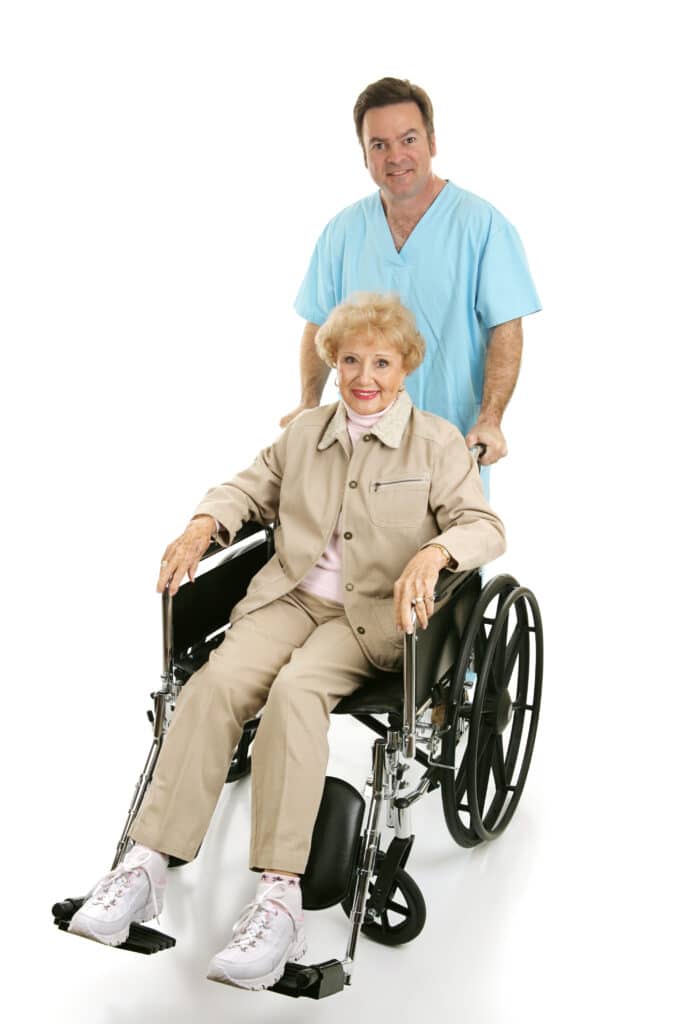Some elderly people with Alzheimer’s or Dementia will start showing agitation or restlessness in the late afternoon or early evening. The cause of this condition isn’t well understood, but there are various symptoms that may indicate your loved one has Sundowner’s Syndrome.
Not everyone with Alzheimer’s develops Dementia. Also, not every person with Dementia will develop Sundowner’s Syndrome, but if someone you love is displaying the following behaviors, you may want to consider the possibility they have this neurological condition.
Common symptoms of Sundowner’s Syndrome are:
- Increased Confusion or Disorientation
- Agitation and Anxiety
- Restlessness
- Acting Suspicious or Fearful
- Becoming Irritable or Demanding
- Have Mood Swings
- Verbal Outburst or Yelling
- Pacing
- Hearing or seeing things, delusions
SUNDOWNER’S SYNDROME AND HOME CARE
Having a loved one become anxious and fearful at night can cause disruption in your home. It helps to have an experienced professional who can calm, distract, and soothe someone with Sundowner’s Syndrome. A trained professional knows how to avoid triggers and redirect an elderly person’s attention when they are agitated or having delusions.
There are things that families can do to minimize the effects of the condition:
- Keep a steady routine
- Waking up and going to bed at the same time every day, having meals on a set schedule, and implementing a set evening routine all help ease the impact Sundowners can have on a person’s behavior.
- Limit or prevent things that prevent sleep
- Caffeine and sugar should be limited to mornings to prevent chemical stimulation that will prevent sleeping at night. Don’t allow your loved one to nap late in the day and restrict when and how much they drink or smoke. Serving a large lunch and a smaller dinner will also help them sleep at night.
- Prevent overstimulation before bedtime
- Darkness can cause agitation so close curtains and turn on interior lights. Keep distractions and noise to a minimum when bedtime is approaching. Do quiet, calming activities before bed – read, play cards together. Listen to calming music and set the room to a comfortable temperature. Make sure family members and visitors know to keep evenings calm and quiet by limiting things like cell phone usage, loud music, or conversations.
Memberships and Credentials
- State Licensed, Bonded and Insured Non-Medical Home Care Organization (HCO)
- Alzheimer’s Association Member
- National Association for Home Care & Hospice (NAHC)
- Home Care Association of America (HCAOA)
- Member of American Care Management Association (ACMA)
- Approved Vendor by Long-Term Care Insurance Companies
- Contracted Provider for Long Term Care Insurance Guild
- Vendor for Anthem Blue Cross / Blue Shield
- Provider for Health Saving Accounts (HSA) Health Plans
- Certified MediCare / MediCal Provider for Personal Care Services
- Vendor for Medi-Cal Waiver Programs
- Vendor for Covid Support Services for Regional Centers
- Respite Care Vendor by California Department of Developmental Services (DDS)
- Frank D. Lanterman Regional Center Provider
- Regional Center of Orange County Provider
- East Los Angeles Regional Center Provider
- North Los Angeles Regional Center Provider
- Service Provider for Senior Care Network / Huntington Hospital – MSSP
- Los Angeles Caregiver Resource Center – USC Davis – MSSP
- Approved Vendor for Partners in Care Foundation – MSSP
- Approved Agency for Family Caregiver Resource Center in OC / St. Jude’s Hospital – MSSP
- Member of American Board of Home Care (ABHC)
- Member of America’s Choice Provider Network (ACPN)
- Workers Compensation Approved Provider
Call today for experienced help with Sundowner’s Syndrome!






